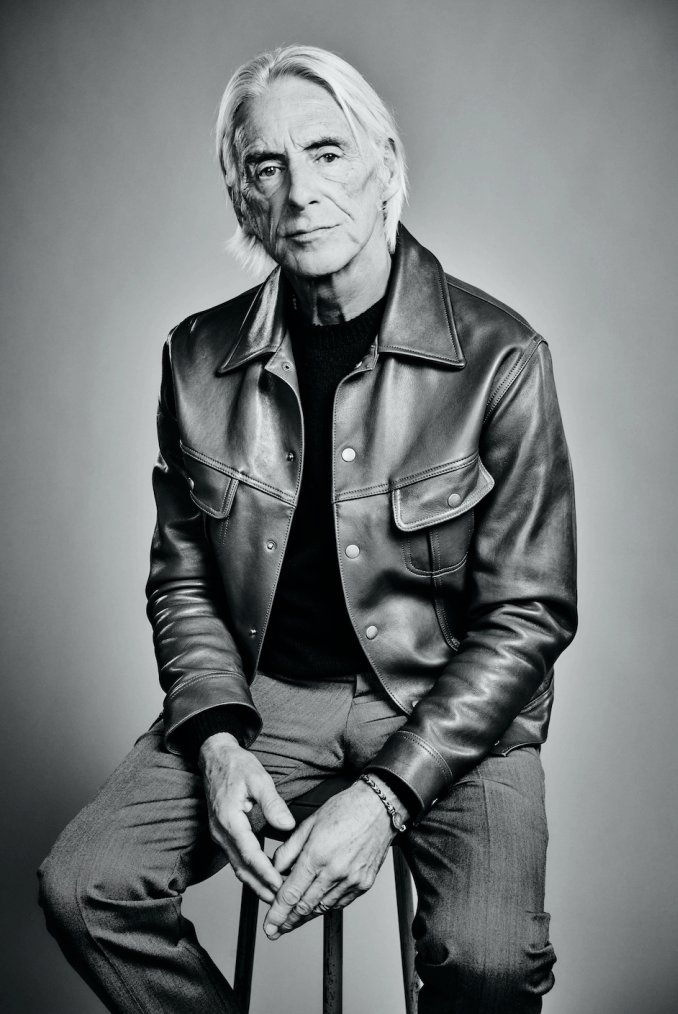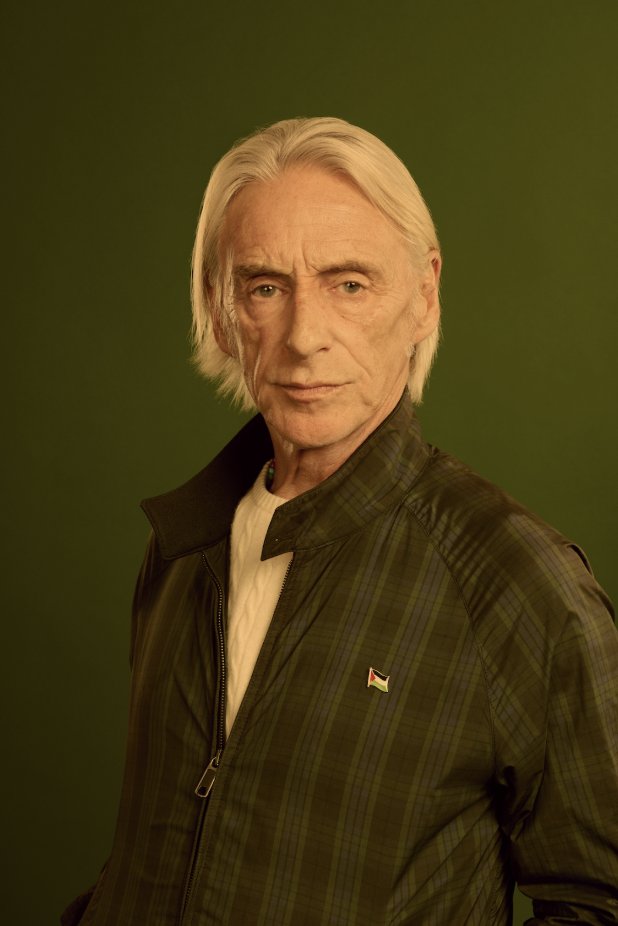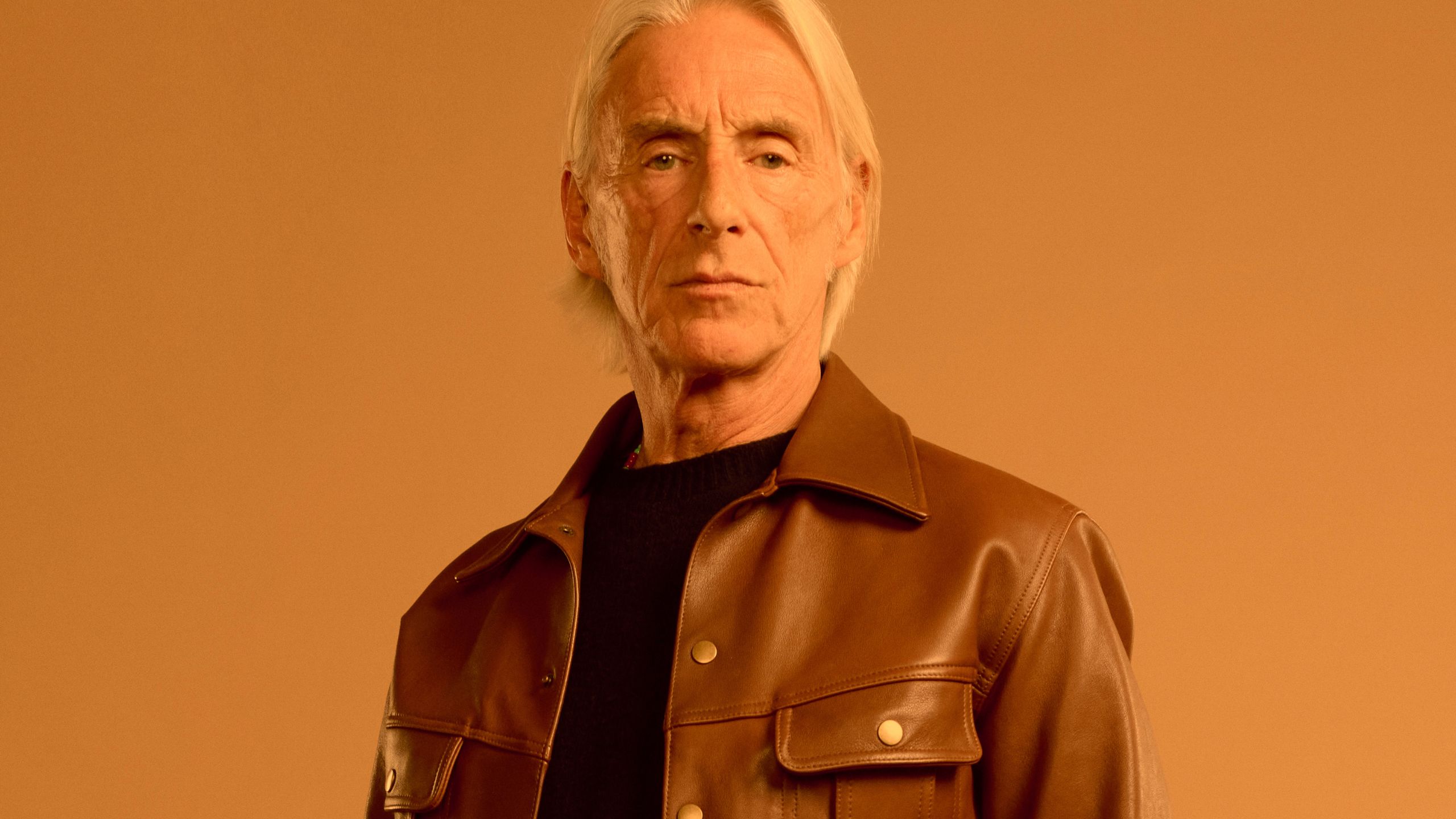Paul Weller may be one of the most revered songwriters to come out of England over the past half-century, but the man has always had a flair for a good cover version, as well. He memorably put his own stamp on over a dozen songs by other artists during his years with The Jam and The Style Council, and in 2004—after already peppering another dozen solo B-sides with enthusiastic renditions of other people’s material—he released Studio 150, an entire album of covers.
But while that record leaned heavily on such standards as Bob Dylan’s “All Along the Watchtower” and Tim Hardin’s “Don’t Make Promises,” Find El Dorado—Weller’s latest covers album, and his 18th solo LP overall—digs impressively deep. Sure, the Bee Gees’ “I Started a Joke” was an international hit back in 1968, but only the most intrepid crate diggers will be familiar with the likes of French studio group The Guerillas’ one-off groover “Lawdy Rolla,” Willie Griffin’s weirdly out-of-tune early-’80 soul meditation “Where There’s Smoke, There’s Fire,” or Hamish Imlach’s 1971 folk-blues “Clive’s Song,” which Weller recorded for this album with the help of one Robert Plant.
Produced and arranged by longtime collaborator and Ocean Colour Scene guitarist Steve Cradock, the predominantly acoustic Find El Dorado also features guest appearances from Declan O’Rourke, Noel Gallagher, Amelia Coburn, and even Weller’s old Jam-mate Steve Brookes, who adds acoustic guitar to “I Started a Joke.” But despite the varied personnel and material, Find El Dorado’s 15 tracks share a similarly melancholic and introspective vibe, one which is especially conducive to late-night listening.
Weller, on the other hand, seems uncharacteristically sunny and relaxed when he meets with me via Zoom to talk about the new album. The prolific songwriter’s current self-imposed break from the album-tour-album-tour cycle has clearly done him a world of good, as has the atypically “hands-off” recording experience of letting Cradock run the show during the making of Find El Dorado. “There were times in the studio where I was thinking, ‘Oh, I don’t know about that—we could do this!’” he laughs. “But then I had to remind myself, ‘Look, he’s producing it, let him get on with it!’ It was a good discipline. Like anything, if you’re open to it, there’s always something else to learn in life, isn’t there?”
Find more of our conversation below.
How did Find El Dorado come about?
It’s something I’ve been storing up in the back of my mind for a few years. There were certain songs that just kept coming back to me as, “They’d be great together,” or “That would sound really nice,” or “I could imagine singing that.” But then I just kept hearing more and more songs. There’s stuff [on this album] that I’ve only heard in the last year or two, which I just thought were amazing—songs like “Pinball” by Brian Protheroe, which was a hit back in 1974 but I don’t remember from the time, and “Journey” by Duncan Browne, “Lawdy Rolla”…there’s at least six or seven that I’ve only heard in recent times. But the more I listened to these songs, the more I could hear a thread—not a concept of any kind, but some sort of musical thread. I felt like they connected in my mind, anyway.
I took this year off touring because we’ve done shitloads in the last couple years—all great, but it felt like a good time to stop for a bit. I didn’t really want to write anything or make a record of my own songs, but I still wanted to make music. So I thought, “Well, this is a good time to do the covers record.”
When you were prepping for the record, did you and Steve Cradock sit down with all the songs and be like, “OK, this is kind of what I see for this one”? Or was it just like, “Here’s the list of the songs I’m doing—you figure it out”?
I put all the originals into a running order which I thought really worked, so we kind of worked pretty much to that structure. But I didn’t suggest anything at all to Steve; I kept out of it and just waited to see what he came up with. And, you know, we’ve been pretty faithful to the originals in terms of arrangement. A few things have changed, and we’ve added stuff, but we’ve tried to stay as close to the original as possible, really. It’s not like we’re making it better or something, because they’re all great tunes, anyway.
Were the more obscure tunes chosen from a sort of evangelical impulse, like “You’ve gotta hear this song”?
There was a bit of that, as well, man. I mean, a lot of them are new to me—and as I’m sure you know yourself, every time you hear something that turns you on, it makes you backtrack in the genre or artist or whatever. There’s always great music out there you’ve never heard before. I mean, they’re all absolutely songs I would send to my mates, or mates would send to me and I’d pass on, because it’s just, “You really should hear this tune”—not necessarily my version, but the original. There’s a few songs on this record that people will know, and some are fairly obscure, but I think in a really interesting way. I hope, anyway! [Laughs.]

Oh yeah, for example, “Lawdy Rolla” is a great tune that’s completely new to me.
That was one that was sent to me by Richard Hawley; we always send each other tunes over the phone. Neither of us really knows much about what the band was, or if it was a band—it sounds like a bunch of session people. I think it’s a French record, and the only person on it that I’ve heard of is Manu Dibango, the African sax player. It sounds to me like one of those things where you’ve got a bit of free studio time and it’s like, “Let’s just go in and put a tune down.” And there’s “Where There’s Smoke, There’s Fire,” where the original’s by Willie Griffin—I don’t know if you’ve ever heard that one…
I have, and it’s quite the strange recording!
I mean, it’s just the most out-of-tune record ever, innit? But, nevertheless, it works. So when we were doing that, Steve was like, “Are we going to try and fuck the guitars up?” And it’s like, you can’t do that; they’ve just caught something, and it’s wrong—but it’s also right, as well. So we did the tuned-up version. But the original was brilliant, man.
On the more well-known side, there’s “I Started a Joke,” which was easily the biggest pop hit out of all the songs you recorded for this album. What’s your relationship with the Bee Gees?
You know, I didn’t always connect with their voices, if I’m honest. But they’re incredible writers, and I knew many of their songs from other peoples’ versions, like Nina Simone’s “To Love Somebody” and Candi Staton’s “Nights on Broadway,” and Tavares did one [“More Than a Woman”], as well. But “I Started a Joke,” that’s an incredible song. The lyrics are just so deep and leveled, you can make of it whatever you will. It’s just a beautiful bit of writing.

“The more I listened to these songs, the more I could hear a thread—not a concept of any kind, but some sort of musical thread. I felt like they connected in my mind, anyway.”
Did Steve invite the various guests to play and sing on the album, or did the idea to bring them in come from you?
Mainly from me, I think—like Declan O’Rourke singing the dual vocal with me on the first track, “Handouts in the Rain.” And we’d been talking about asking Robert Plant to come and play on a track for ages, and he’s always said “Yeah,” but we’ve just never found the right thing. So I think Steve said “Clive’s Song” would be a good one to see if we can get Robert down to play blues harp on it, which he did. And then I didn’t really have the courage to do it [laughs], but Steve said, “You up for doing a bit of singing, as well?” And he was like, “Yeah, great!” So it was easy, man—no big ego, nothing. He just drove down, did what was required, and drove home.
It’s funny, because back in the day I couldn’t have imagined two bands more diametrically opposed than The Jam and Led Zeppelin. And then here the both of you are, singing together.
Well, 50 years later, you know! But I really love his solo stuff, especially the Carry Fire album. You hear the Sun Records in there, and you hear blues in there, folk in there, and then North African music—all sorts of things, and they mix them all together in a way that’s really beautiful. And I really like his voice now, as well; it’s just got a real beautiful tone to it now, a lower tone that’s really nice.
You said you got turned on to some of these songs by your mates. Do you still shop at record stores?
Oh, yeah. I mean, there’s fewer of them, but they’re still there, and they’re still strong. Mainly I’ll go to Rough Trade in London, but also Honest Jon’s, which is on Portobello Road. They do mainly jazz, some funk, reggae, some folk stuff and, you know, other music from other places. That’s a great shop. And then Sounds of the Universe, which is in Soho, that’s a great shop; they’ve got the license for a lot of the old Studio One stuff, and they put some brilliant compilations out.
What are your plans going forward? Are you cooking up a new record of original material as we speak?
No, I’m purposely avoiding it [laughs]. I’m just sort of storing up ideas and songs on my phone, and I’ll probably see where I get to by the end of the year or something. I’m not in a big rush at the moment; but having said that, I have been co-writing with a lot of people, and recording with them and producing them at my own studio, and that’s been nice. I don’t know what they’re going to do with the stuff we’ve done, but it’s good. So I feel great, but I’m just not in a big rush to make a record at the moment; I don’t really know yet what I’d want it to sound like. FL







